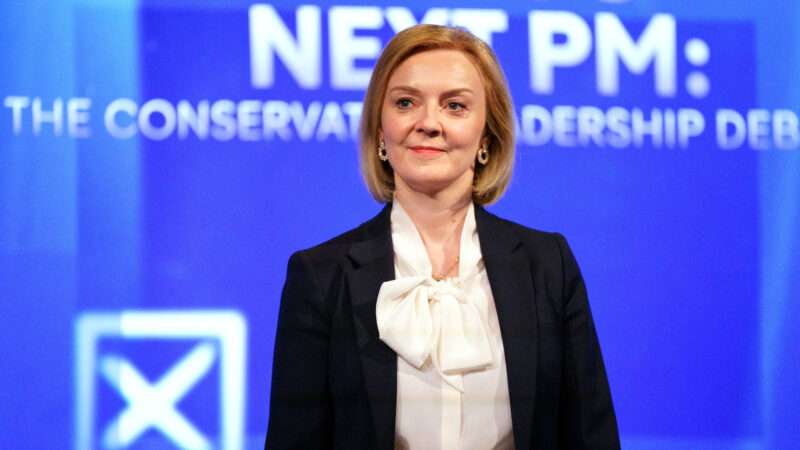
The race to succeed Boris Johnson as leader of the Conservative Party and British prime minister has narrowed to two candidates. So it's now up to ordinary Conservative Party members to decide who will lead their party and assume the role of prime minister on September 5.
The favorite among a plurality of Conservative members of Parliament is Rishi Sunak, the former chancellor of the exchequer who resigned from Johnson's government. During the height of the coronavirus pandemic, Sunak was responsible for a raft of spending policies which temporarily made him the most popular politician in the country. Sunak was elected to Parliament in 2015 and has enjoyed a meteoric rise to the top of British politics. In his maiden speech addressing Parliament, Sunak, a former hedge fund manager and employee of Goldman Sachs, stressed the importance of controlling the deficit and of the government functioning within its means. Sunak campaigned for Brexit and backed Johnson for prime minister but is now seen as one of the key figures who brought down the blond bombshell.
Sunak's opponent, Liz Truss, was elected to Parliament in 2010. She's held a number of top jobs, most recently foreign secretary. Although she campaigned for Britain to remain in the European Union, she has embraced the possibilities Brexit has offered in terms of striking free trade deals around the world and scrapping E.U. regulations. Truss has a reputation as one of the leading advocates for free enterprise within the Conservative Party. A regular speaker on the free market think tank circuit, Truss authored a book with several colleagues in 2012 called Britannia Unchained: Global Lessons for Growth and Prosperity. The book is a clarion call for economic growth and a change in Britain's economy from one which the authors see as overtaxed and overregulated with an overly large public sector. For now, Truss is the firm favorite among Conservative members, leading Sunak in several opinion polls.
Truss and Sunak have two distinct visions of what Britain's economic policy should be. Sunak is pitching himself as the candidate for fiscal conservatism, insisting that tax cuts have to wait until public finances are in better shape after the splurge of spending that accompanied the pandemic. Truss takes the opposite view, saying she will reverse a planned hike in corporation tax, reverse an increase in national insurance tax, introduce a temporary moratorium on green energy levies, and increase the marriage tax allowance. Truss has also pledged to increase defense spending while reducing the overall size of government. Like the U.S., Britain is suffering from high inflation, and Truss has said she would like to review the Bank of England's mandate to ensure it's sufficient to tackle the problem.
The candidates have exchanged fierce fire on their policy proposals. In a televised debate, Sunak claimed that Truss' proposed tax cuts are unfunded, "socialist," and worse for inflation. Echoing George H.W. Bush's criticism of Ronald Reagan, Sunak called Truss' plans "fantasy economics." Truss hit back, arguing Sunak's tax hikes would choke off growth and highlighting his role in raising Britain's tax burden to its highest in 70 years.
"Both candidates would consider themselves free-marketeers, but Truss is more committed to them ideologically than Sunak," says the Cato Institute's Ryan Bourne, who has held positions at free market think tanks in the United Kingdom and is a weekly Times Business columnist. "Under her, tax rates would be lower, short-term borrowing somewhat higher, but I suspect she'd take a firmer grip on spending growth than Sunak after the next election. Her instincts are more market-oriented where regulation is concerned, so I'd expect sensible deregulation in important sectors to living costs, such as childcare, and an easing up on the anti-big tech crusades."
But Bourne sees a fly in Truss' ointment for free marketeers. "The two areas where she might potentially be very modestly less libertarian than Sunak are on housing and immigration. Not because she's restrictionist on either, but because of the composition of her Parliamentary support base." Of the two, Truss more clearly believes free market reforms are essential to raising Britain's productivity, growth rate, and living standards and not just red meat to throw at the conservative base.
The post Will Britain's Next Prime Minister Champion Free Markets? appeared first on Reason.com.







